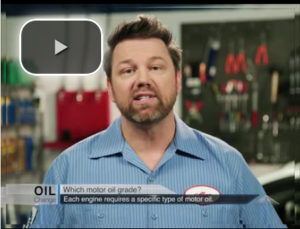 If you have ever gone into an auto parts store or even looked around an auto repair shop, you are aware of how many different types and grades of motor oil is available. It’s almost crazy the options out there these days! That being said however, motor oil is so much better today than it has been in past years. Manufacturers have improved oil life, and many motor oils, especially the synthetics, have additives in them that keep your engine cleaner and running longer than ever before. But with so many options out there, what type of oil is the best?
If you have ever gone into an auto parts store or even looked around an auto repair shop, you are aware of how many different types and grades of motor oil is available. It’s almost crazy the options out there these days! That being said however, motor oil is so much better today than it has been in past years. Manufacturers have improved oil life, and many motor oils, especially the synthetics, have additives in them that keep your engine cleaner and running longer than ever before. But with so many options out there, what type of oil is the best?
Well, first and foremost, each vehicle has specific oil requirements and those requirements must be adhered to at all costs. Each engine is designed to work with a specific type of oil and if you put the wrong oil into your vehicle, you could irreparably damage your engine – so we repeat – check your vehicle’s oil specifications before you go any further.
Next, let’s take a look at four different oil categories:
Premium Conventional Oil – This type of oil typically comes standard in new vehicles and there are different viscosities available which will cover just about every passenger vehicle out on the road today. Many vehicles run great with premium conventional oil, however, high performance vehicles tend to require a synthetic blend.
Synthetic Blend Oil – For just a few cents more than premium conventional oil, you can use a synthetic blend in your vehicle. These are a blend of synthetic oil mixed with organic oil and are specifically formulated for higher temperatures and heavier loads. They are less volatile, which means less oil loss and increased fuel economy. Many SUV and truck owners choose this type of motor oil to help protect against heavy load usage.
Full Synthetic Oil – This is a premium oil, and the price tag reflects that. However, the performance of full synthetic oil is currently unmatched among motor oils. Many high-end or high-tech vehicles require full synthetic oils – think BMW or Corvette or even Mustang. They are able to maintain optimum lubrication at higher temperatures and maintain better flow rate at lower temperatures. They have a much longer life span and offer better protection against deposits.
High Mileage Oil – Considering that many vehicles on the road are more than 11 years old, and many experts maintain that roughly two thirds of the vehicles out on the roadways today have more than 75,000 miles on them, high mileage oil is a great addition to the motor oil market. These oils are specially formulated to protect older engines. They contain conditioners and additives that help to protect against oil sludge, oil consumption and leaks, and increasing wear and tear on the engine.
Choosing the right type and category of engine oil is obviously important in protecting your engine, but if you never change your oil this is a moot point. Regular oil changes, including oil filter replacement, is the single most important maintenance item you can perform on your vehicle. Most mechanical failures can be traced back to neglected maintenance, and oil changes top the list for importance.





